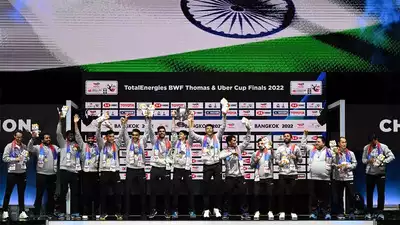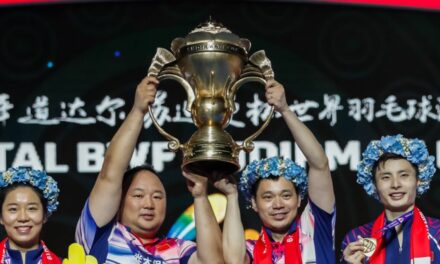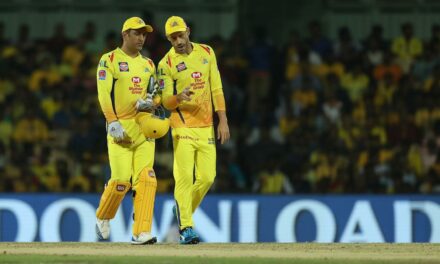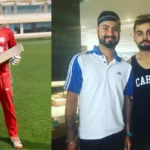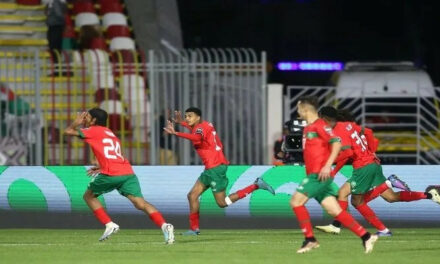
South Africa coach Mark Boucher apologizes for offensive songs, nicknames; rot runs deep
South Africa head coach Mark Boucher has admitted that the culture of the national team in his playing days was exceptional due to the fact that the players were “poorly prepared” for the challenges after apartheid.
He also apologised “for the part I played in joining in with my team-mates in singing offensive songs or using offensive nicknames.”
According to ESPNcricinfo, Boucher submitted a 14-page affidavit to Cricket South Africa’s Social Justice and Nation-Building committee containing “general response,” after former South Africa cricketers revealed instances of racial discrimination and toxic team culture.
DEROGATORY NAMES, REMARKS
Paul Adams, the only player of colour in the team when he made his Test debut in 1995, revealed that he was subject to racial stereotyping during his nine-year-old career.
“I was called brown sht when I was playing. It often used to be a song when we won a game and we were in fines’ meetings (team celebrations after series wins). They would sing, ‘brown sht in the ring, tra la la la laa… When you are playing for your country, when you have had that victory, you don’t make sense of it, you brush it off, but it’s blatantly racist. Some people will say unconscious bias and they weren’t aware but this is why we are here – to change that.”
Adams also shared an incident on a WhatsApp group of former internationals from the 1990s and 2000s. “On the 7th of January 2020, South Africa Under-19 lost a game against Zimbabwe and a player wrote on the group: ‘How long are they going to keep that monkey there’, speaking of the U-19 coach Lawrence Mahatlane.”
Ashwell Prince recalled hearing derogatory remarks for South Africans of Indian heritage in the dressing room.
“In the 2006-07 season, we were playing a day-night match in Durban and a fight broke out on the grass banks. Most of the people were Indians. Some of the comments in the dressing room astounded me. There were remarks made like, ‘Typical f charous, can’t behave themselves, drinking cheap liquor and can’t behave.’ My wife is Indian. We had one of the greatest managers, who we all respected, in Goolam Rajah, who was Indian.”
Boucher’s response
According to ESPNcricinfo, Boucher went into detail about the allegations made by Adams. He explained that he “can categorically say that did not give Mr Adams the name “brown s**” and “does not know who gave him the name,” but conceded that he was part of the group that sang a song in which Adams was called “brown sht” and apologised “for the part I played in joining in with my team-mates in singing offensive songs or using offensive nicknames.”
TEAM CULTURE
Prince recalled how a non-white player’s suggestion to discuss “Apartheid, the Group Areas Act (a piece of legislation which stipulated where people from different race groups could live), and forced removals” during a culture camp in 2011 was rejected.
“The answer was, ‘No, we can’t talk about that. We don’t think that should be discussed in this environment.’ So we didn’t have a discussion. Now, today people don’t want to take a knee,” Prince said, alluding to the criticism of pacer Lungi Ngidi’s Black Lives Matter stance by former international players Rudi Steyn, Pat Symcox and Boeta Dippenaar.
During an interview with South African Broadcasting Corporation last year, former fast bowler Mkhaya Ntini revealed that he was “forever lonely” during his playing career. “Nobody knocked on my door to go for dinner. Teammates used to make plans right in front of me, skipping me out. When walking into the breakfast room, nobody came to sit with me. We wear the same uniform and sing the same national anthem, but I had to overcome (the isolation).”
Former batsman Loots Bosman too detailed “the bad environment,” saying, “Most of the time, the guys don’t greet you. They will just look at you. You could see they don’t care that you are greeting. They literally look the other way. They made you feel as though you don’t belong there.”
Boucher’s response
Boucher explained that the white players were “ill-equipped” for post-Apartheid challenges.
“We were not only naive but were also ill-equipped to deal with the new environment in which we found ourselves,” Boucher’s statement read. “To my certain knowledge there had not been any briefing or discussion by CSA as to how we deal with the legacy of Apartheid, how players and management should deal with the additional pressures placed on them by the country and the media, how we ensure that there is equality, respect, empathy and inclusiveness in the team. There was no guidance, no culture discussions, no open fora and no-one appointed by CSA to deal with awkwardness or questions or pressures that were being experienced by the players and, in particular, by the players of colour.”
CLIQUE OF WHITE PLAYERS
Along with the toxic team culture, Adams, Bosman, Prince and Roger Telemachus all talked about an overpowering clique of white players in their testimonies, without naming specific people.
Telemachus, the former pacer, spoke of “the big five”. “That is where the big five started. They control selection. They control everything. They used to go to the coach and say this is how we are going to play. This is where we gave the name to these players.”
He added that the group was formed because “they were good friends off the cricket field, good friends on the cricket field, they had their social lives together, even when there weren’t tours. That was how they hooked up and discussed things.”
“That environment was just bad. You could just see those guys don’t want us to play there,” said Bosman, who further hinted that it was a group of batsmen. “There has always been this thing that there are no black batters. There are black batters but they are not being used. I was there. When you are competing with white players and you are black, you have no chance. When you are black, you are going to struggle.”
Boucher’s response
Boucher, who was implied to be part of the group, acknowledged that close friendships were formed in the team by “players of the same age, or with shared interests or from shared background.”
“It is unfortunate that the group of players that became the senior Protea players in my playing career and who spent time together have been portrayed in the hearings by some witnesses as a cynical clique who were involved in selection. This is simply not true,” Boucher wrote. “It is unfair to say, without any substantiating evidence, that this clique in any way undermined the values, culture or performance of the team or was involved in selection.”
TEAM SELECTION
The players said that the culture and the clique made for unfair team selection.
Adams felt off-spinner Symcox was preferred to him he was white and “they didn’t want me to outshine the white player and rather just left me in that corner and sit and listen.”
Telemachus said that “the big five” moniker was coined at the 2007 World Cup, where he was reduced to a passenger. Along with the clique, Telemachus also indicated there was political interference. Neither Ntini nor Telemachus played in the World Cup semifinal, which South Africa lost to Australia by seven wickets.
Prince revealed that during the post-World Cup inquiry meeting between the players, team management and senior officials from CSA and some younger players, “one of the players broke out and said: ‘The problem we have is the quota system’. And one or two others gained confidence and latched on to that so it became that that was the problem in our cricket: the non-white players are the problem. People were talking and five or six players said the same thing.”
After an ODI series against India in 2015, Khaya Zondo and several other black players wrote a letter to CSA, expressing their unhappiness with how Dean Elgar was slotted into the XI in place of an injured JP Duminy, despite Zondo being the back-up batsman in the squad.
During a domestic match afterwards, Zondo was told by white players: ‘If you weren’t so focused on writing letters, you might be a better player” and called him “postman”.
Boucher’s response
He denied any involvement of a clique in selection, and specifically mentioned the case of Thami Tsolekile, who replaced Boucher when he was dropped in 2004, and was contracted to replace Boucher in 2012 but did not play.
My intentions were always to help him build confidence so that he could play well and so that South Africa could win games,” Boucher said and called for more transparency to avoid any race-based speculations around selection.

